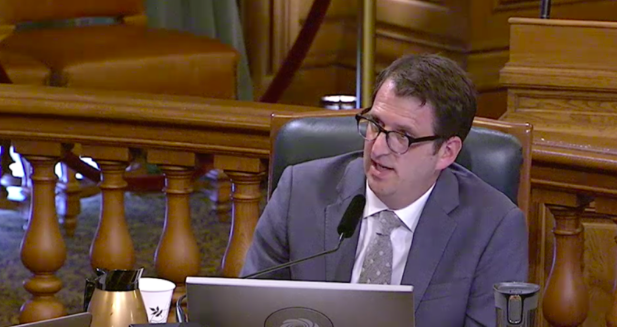On Tuesday, the Board of Supervisors voted 10-1 to ban smoking tobacco in San Francisco apartment buildings with three or more units—but rejected a similar ban on cannabis smoking. Coming the day before the House of Representatives’ historic approval of the MORE Act, the supervisors’ decision reflects a nationwide legislative trend towards ensuring cannabis access.
The No Smoking in Multi-Unit Housing Complexes ordinance was written by board president Norman Yee, who commented during Tuesday’s hearing that, “It should be remembered that every fight to protect our communities from secondhand smoke was at one time framed as overreaching policy that takes away the rights of those who smoke … We can see that pattern clearly.”
The bill includes a maximum $1,000 penalty per day for violations to be enforced by the Department of Public Health. But it does include language stating its ban on home smoking could not be used as grounds for a tenant’s eviction.
Yee clearly hoped to reach a resolution on the issue before he is termed out in January. But some supervisors, like Gordon Mar and Hilary Ronen, lamented the quick timeline of the bill, which was introduced one month ago and has been subject to intense public debate.
“It is controversial, and it’s impacts will last well beyond any of our terms in office,” said Mar.
Few supervisors disagreed with the fact that tenants have the right to breathe tobacco-free air.
“I myself, when I’ve gone to deliver meals or visit people in these big apartment buildings, I also go into hallways that just reek of cigarette smoke,” said Supervisor Sandra Fewer.
But neither did they agree that cannabis smoke should be subject to the same restrictions as that of tobacco. Unlike cigarettes, California health code states that you can’t smoke marijuana in public. The bill would have essentially banned smokable forms of cannabis for many residents—in a city that was an early home to the global marijuana legalization movement.
To pass such a repressive ban on smoking cannabis would have been wildly out of step with national political trends. In the fall elections, no fewer than five states widened cannabis access, approving 100% of the statewide ballot measures expanding marijuana regulation. On Friday, the House of Representatives approved the Drug War justice-focused MORE Act, marking the first time a US legislative chamber has decided on the end of cannabis prohibition in a floor vote.
Sup. Rafael Mandelman introduced the amendment to the bill to remove its cannabis language yesterday. Despite some supervisors complaining that they had not been giving adequate time to consider the amendment, it was approved by the board in an 8-3 vote, with Yee and Supervisors Gordon Mar and Ahsha Safaí in dissent.
“Cigarette smokers and tobacco smokers are fundamentally in a different position under state law,” Mandelman said in Friday’s hearing.
Yee had previously introduced an amendment to the bill to prevent it from applying to marijuana users with a medicinal card. He allowed that cannabis has many benefits, but indicated that the risks of secondhand smoke left him convinced the ban on recreational use should stay in the bill.
Supervisor Dean Preston was the sole dissenting vote against the smoking ban once its language around cannabis had been removed. He cited his experience during years as a tenants’ rights advocate, saying that a ban on tobacco smoking in one’s own apartment is a complex issue.

Preston said he was concerned about “the risk that [the tobacco smoking ban] is selectively used against long-term tenants,” reminding the board that many leases already include language that bars smoking in apartments.
“I will say that in 20 years of my landlord-tenant experience, I cannot think of another issue that has so divided folks who really have good intentions on both sides,” continued Preston. “Folks who are trying to protect their own health and public health, and folks who are addicted to cigarettes or are using within their own homes, and want to keep their homes.”
At the core of the debate was the legislation’s potentially classist application. The bill would not affect those San Franciscans rich enough to have a single family home, but instead focus on apartment dwellers, who are more often BIPOCs, and who make less money.
Yee, who said he was compelled to act on the issue when a mother called him saying her child had developed a chronic cough due to secondhand smoke from another apartment unit, rejected such criticism. Indeed, he called the risk of secondhand smoke exposure, “a health justice issue that amplifies health inequities.”
Next steps for the bill include a second hearing by the board next week. If approved, it will go from there to Mayor London Breed to be signed into law, to take effect within 30 days.







